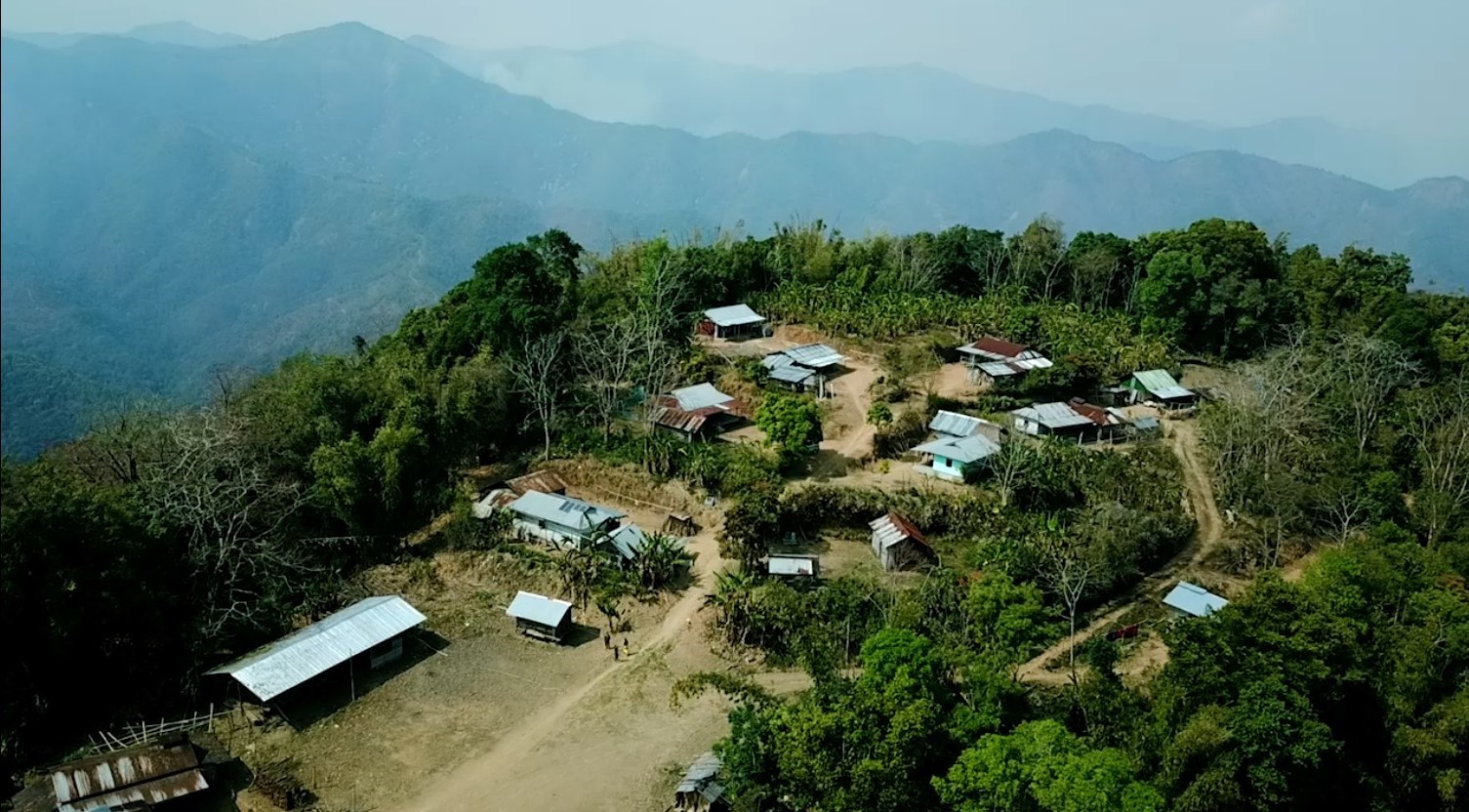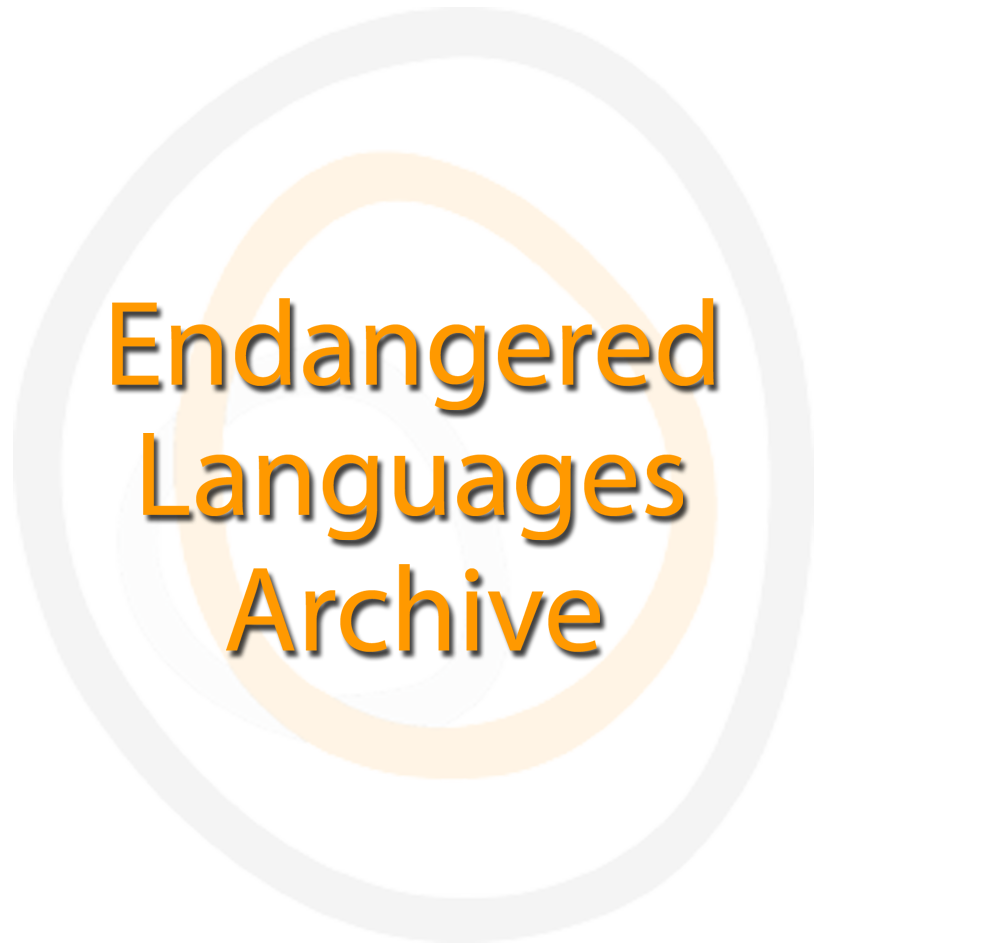Documentation of Uipo

Aerial view of Khoibu village in the Uipo ancestral land. Photo by Khamba Khamnaingam Saka, 2018. Click on image to access collection.
| Language | Uipo |
| Depositor | Freya Schumann, Mosyel Syelsaangthyel Khaling |
| Affiliation | University of Innsbruck |
| Location | India |
| Collection ID | 0770 |
| Collection Status | Collection online |
| Landing Page Handle | http://hdl.handle.net/2196/b42607b3-d16e-4a90-a230-7199e23b5255 |
Summary of the collection
The current collection includes storytelling and a group debate, both recorded by community linguist and “Grandfather” of the Uipo language Mosyel Syelsaangthyel Khaling. The transcriptions, translations, and glosses are the result of the principal investigator’s collaborative work with Mr. Khaling.
Group represented
The group represented in this deposit are the Uipo people. Uipo (also known under the exonym Khoibu) is an endangered Trans-Himalayan/Tibeto-Burman language spoken in Manipur’s Chandel district, Northeast India. The Uipo community is made up of about 1800 speakers, most of whom live in the main village Khangshim and some in cities as well as in villages in the surrounding hills. Khangshim was founded in 1972 as the result of population shifts, with people leaving traditional hill villages abandoned and moving to the densely populated and multicultural valley area which is dominated by the majority Meitei community.
Politically, the Uipo community only relatively recently separated from the Maring tribe. Before the separation, the Uipo language was marginalised as a result of them being classified within the neighbouring larger Maring community and language and a lack of internal support for their independent status. In 2015 the Hill Area Committee of the Manipur Legislative Assembly recommended the official recognition of the Uipo people as a separate Scheduled Tribe. In terms of its affiliation, the Uipo tribe is grouped as ethnically belonging to the Naga tribes.
Language information
Uipo is a Trans-Himalayan/Tibeto-Burman language, but its classification within the family is unclear. Uipo and Maring (the closest related language) are often grouped with Tangkhulic languages, however, it has been argued (Mortensen 2003) that they do not fit in well with other languages in the Tangkhul group and instead form a bridge between Tangkhul and South-Central (“Kuki-Chin”). Culturally, Uipo shows parallels with the neighbouring communities, belonging to the Naga ethnopolitical group, which includes speakers of languages from different branches of Tibeto-Burman languages.
Uipo is spoken at home and in the community but is under threat from the majority language Meitei. Meitei and English are the languages of broadcasts and schooling. Meitei is also the lingua franca used to communicate with members of other communities.
Collection contents
The collection consists of video recordings and time-aligned transcriptions in ELAN and Toolbox file formats. The twenty-minute long storytelling material is fully transcribed, translated, and glossed. Of the group discussion video the beginning has been transcribed, translated, and glossed.
References
Mortensen, David (2003). Comparative Tangkhul.
Bijenkumar Singh, Laishram (2014). A Descriptive Grammar Of Khoibu. PhD thesis.
Sæbø, Lilja (2020). A Description of Uipo Phonology. Masters thesis.
Acknowledgement and citation
Users of any part of the collection should acknowledge Mosyel Syelsaangthyel Khaling as the data collector and Freya Schumann as the principal investigator.
To refer to any data from the collection, please cite as follows:
Khaling, Mosyel Syelsaangthyel, and Freya Schumann. 2023. Documentation of Uipo. Endangered Languages Archive. Handle: http://hdl.handle.net/2196/5f731cac-5bc3-485d-90ad-37f82772279d. Accessed on [insert date here].


